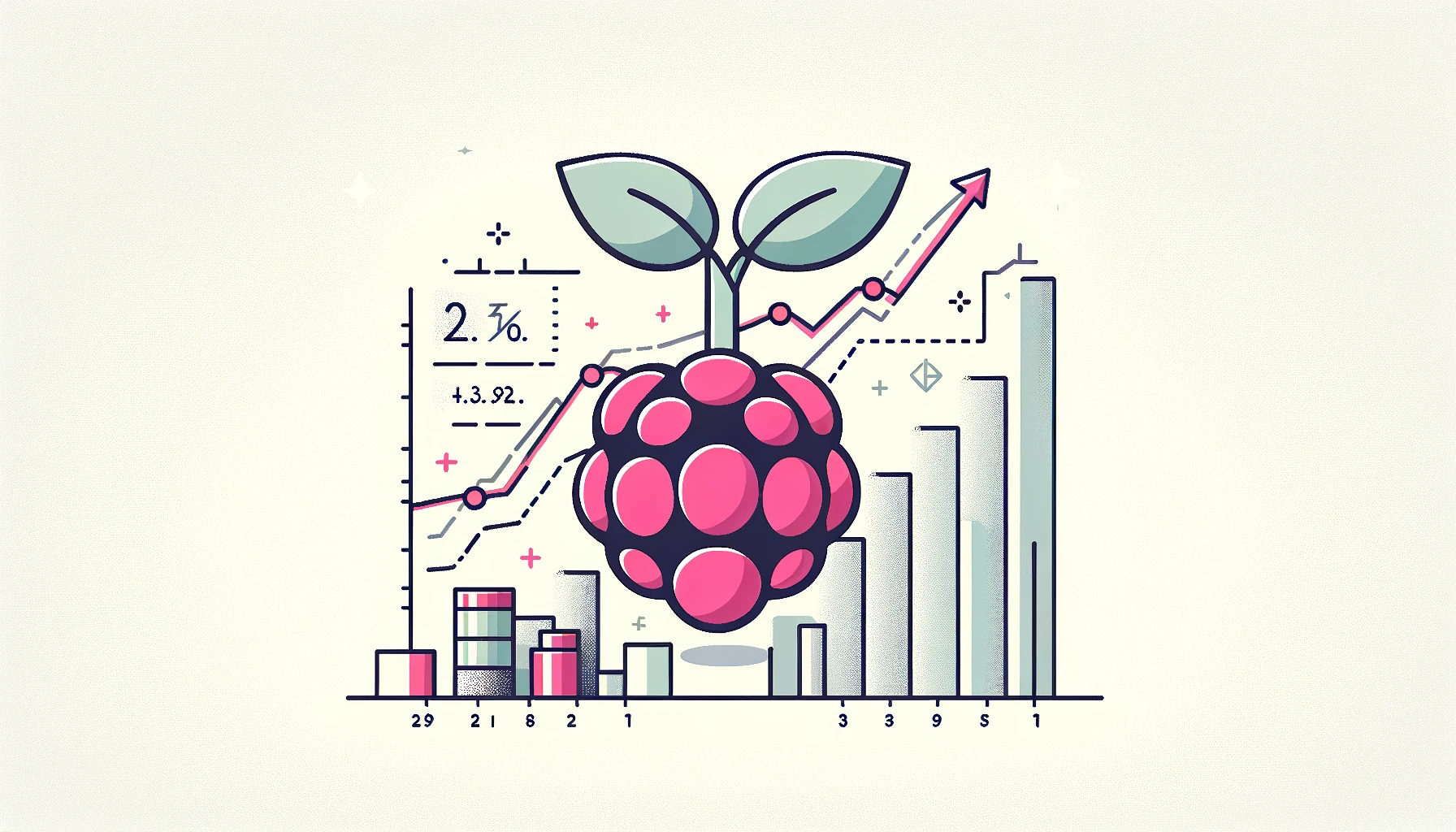Raspberry Pi, the innovative company behind the compact and affordable single-board computers, has officially entered the public market. The company’s shares soared 32% following its initial public offering (IPO) on the London Stock Exchange, marking a significant milestone for the tech industry and the London stock market.
IPO Highlights and Market Response
On Tuesday morning, Raspberry Pi priced its IPO at £2.80 per share, giving it a valuation of £542 million, approximately $690 million. This strong opening was met with immediate enthusiasm from institutional investors, driving the share price up to £3.70, a 32% increase. With this surge, Raspberry Pi stands to raise over $200 million from its IPO, providing a substantial capital boost for future developments and expansions.
Currently, trading is restricted to certain institutional shareholders, with retail investors gaining access to the shares starting Friday. This phased approach aims to stabilize the stock and build momentum as it opens up to a broader investor base.
Context and Background
Raspberry Pi’s journey from a niche tech product to a publicly traded company is a testament to its widespread impact and innovative spirit. Initially launched to promote coding and computing education through affordable, programmable computers, Raspberry Pi quickly captured the imagination of tech enthusiasts. Its ARM-based computers have been used for a variety of creative projects, including media servers, retro gaming consoles, and robotics.
The company’s influence has expanded beyond hobbyists to industrial applications. Today, 72% of Raspberry Pi’s sales come from the industrial and embedded segment, where its devices are integrated into various industrial processes and products. This diversification has been pivotal in driving the company’s revenue, which reached $266 million in 2023, with a gross profit of $66 million.
Raspberry Pi Ltd operates as the commercial subsidiary of the Raspberry Pi Foundation, a charity dedicated to advancing computer science education. The Foundation remains the primary shareholder, ensuring that the company’s educational mission continues to be a core focus. Key strategic investors, such as ARM and Sony Semiconductor Solutions Corporation, also play significant roles in the company’s ownership structure and strategic direction.
Implications and Future Prospects
From my perspective, Raspberry Pi’s successful IPO is a positive indicator for the UK tech sector. It demonstrates the viability of the London Stock Exchange as a platform for tech companies, which have often opted for US markets due to higher liquidity. The listing could encourage more UK-based tech firms to consider local exchanges for their public offerings.
The capital raised through the IPO will likely accelerate Raspberry Pi’s growth and innovation. Given its strong foothold in both the consumer and industrial markets, the company is well-positioned to expand its product lines and explore new applications for its technology. The ongoing support from major shareholders like ARM and Sony suggests a promising future for collaborative advancements and market expansion.
However, there are challenges ahead. Maintaining growth momentum and meeting investor expectations in the public market will require strategic agility and continuous innovation. The company must also navigate the complexities of scaling its operations and managing the increased scrutiny that comes with being a publicly traded entity.
As I see it, Raspberry Pi’s transition to a public company is a bold and exciting move. It reflects the company’s evolution from a small educational initiative to a significant player in the tech industry. With a solid foundation and robust market potential, Raspberry Pi is poised to make even greater contributions to the world of computing and technology.
Conclusion
Raspberry Pi’s IPO success is a landmark event, showcasing the company’s remarkable growth and the confidence of investors in its future. As it begins this new chapter, the company is set to continue its mission of making computing accessible while exploring new industrial and consumer applications. The public market debut not only underscores Raspberry Pi’s achievements but also highlights the potential of the UK tech market on the global stage.






